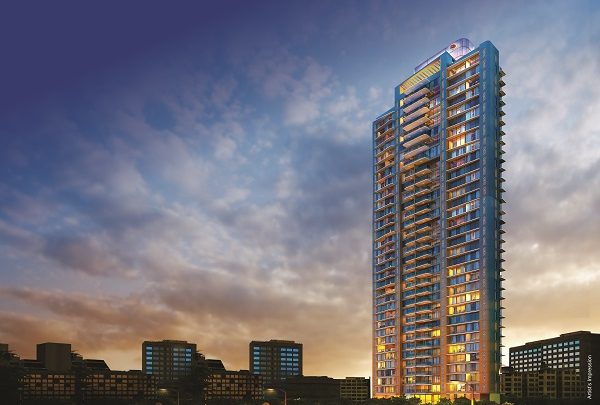Centralized Gears
Pritam Chivukula, Co-Founder & Director, Tridhaatu Realty & Infra Pvt. Ltd

What are the current market conditions that you are witnessing in the industry and how have been the company’s performance so far?
The residential property sector has been subdued for quite some time now, across all major metro cities, including Mumbai. A slight improvement has been seen from the second half of 2018 and into 2019. The residential realty market has faced most of the brunt, while sales in the commercial segment has seen northward movement.
There are numerous factors that have contributed to this situation. There is a huge demand in affordable housing but contrary to this demand we have seen a huge supply of homes catering to the upper end of housing segment. We feel the affordable housing segment hasn’t been tapped to that extent as yet, though it has its own challenges, like availability of infrastructure and connectivity to work places.
Another important trend that we are witnessing is joint developments taking place wherein larger developers are developing properties along with smaller players. Big developers bring in the required capital to complete such projects. This equation works well in the current market scenario wherein smaller developers; due to paucity of funds jointly develop such projects with a larger developer who brings in the required capital and expertise to complete construction of existing incomplete projects. Also, category ‘A’ developers with a good track record are able to raise funds through banks or other financial institutions. Smaller developers benefit as their projects are completed and sold, which otherwise would have been stuck due to want of funds.
How technology is changing real estate market? How do you see the future of realty sector in India?
Technology has been a game changer or rather a disruptor in most industries. Most developers in India today have adapted advances in technology and used them to their advantage. Today a home buyer is very tech savvy. He goes online to search for property. All the tools available to him are used in making his research and finally zeroing on his dream home. There are many property portals that give a home buyer an opportunity to choose from a plethora of home buying options taking into consideration the preferred location and budget of the customer. These portals bring a prospective home buyer directly in touch with the developer thus removing the broker in this chain.
These portals offer the user a wealth of information all necessary for him to make a more informed decision before he buys his dream home.
Another technology that most real estate portals offer customers is the 3D walkthroughs that gives a prospective home buyer an actual look and feel of the apartment and the surroundings without him actually being physically present at the site. These 3D walkthroughs have been quite a hit with NRIs who are abroad and cannot physically check the property.
The profile of a home buyer is rapidly evolving from what it used to be a few years ago. Smart Homes is trending among today’s home buyers, not only in most premium properties but also in affordable luxury homes due to the demand from home buyers who are tech savvy and are at ease with most hand held gadgets.
A Smart Home is a home that provides total comfort and absolute convenience to the owner by way of hi-tech security and energy efficiency. Lighting, heating, air conditioning, TVs, computers, entertainment and security can be controlled remotely from any room in the home, as well as remotely from outside by phone app or internet.
Such homes can be customized and programmed as per need of a home buyer. There is a growing demand for such homes which is rapidly picking up, given wide usage of technological devices that are smart home compliant, such as mobile phones apps and iPads that makes life more comfortable and convenient.
These smart homes are in line with the creation of 100 smart cities across the country by the government where technology plays a pivotal role. Therefore, smart homes is going to be the next big growth story in the realty sector and we hope to see many of the upcoming projects catering to this segment of home buyers that are smart home compliant.
In terms of technology being used in construction development there are new and faster construction techniques being employed such as pre-fabrication and 3D printing, which help developers construct projects in less time. With these faster techniques, the developers can come up with more projects, thereby meeting the ever-growing demand for real estate. Besides, several developers also adopt off-site prefabrication units, which facilitate faster and more precise construction.
What are the attractive opportunities for real-estate sector in India?
There has been a substantial increase in the income levels and therefore home buyer aspiration of a better lifestyle has also gone up. These coupled with urbanization and economic growth has driven residential and commercial realty demand in India. It has become the preferred asset class for investments.
Other segments like warehousing, hospitality and affordable homes are growing at a rapid pace in India, presenting wider opportunities for investors. ‘Housing for all 2022’ is driving residential housing while RERA is making the sector more transparent. Driven by increasing transparency and returns private investments in the sector has surged.
The government has been supportive to the real estate sector. What’s your take on that?
The government has taken several initiatives to encourage development in the sector.
Some of these include the Pradhan Mantri Awas Yojana (PMAY) Urban and the National Urban Housing Fund among others. The introduction of real estate investment trusts (REITs), will provide a platform that will allow all kinds of investors; even those with smaller budgets, to make safe and rewarding investments in the Indian property market.
Developers on their part are also shifting gears in tune with the changing real estate dynamics. To meet the growing need for managing multiple projects across cities, developers are now investing in centralized processes to source material, organize manpower and hire qualified professionals in areas like project management, architecture and engineering.
The growing flow of FDI into Indian real estate has increased transparency in the sector. Developers, in order to attract funding, have revamped their accounting and management systems to meet due diligence standards.
Although the Government has taken up a number of initiatives there is still a lot that can be done. The government should support the industry by constructive policies that will help in alleviating the pain points of the industry. This includes reduction of stamp duty, availability of funds for project completion at reasonable rates, announcing more tax benefits on home loan interest rates, releasing land for development and providing attractive sops to developers for construction of affordable housing etc.

